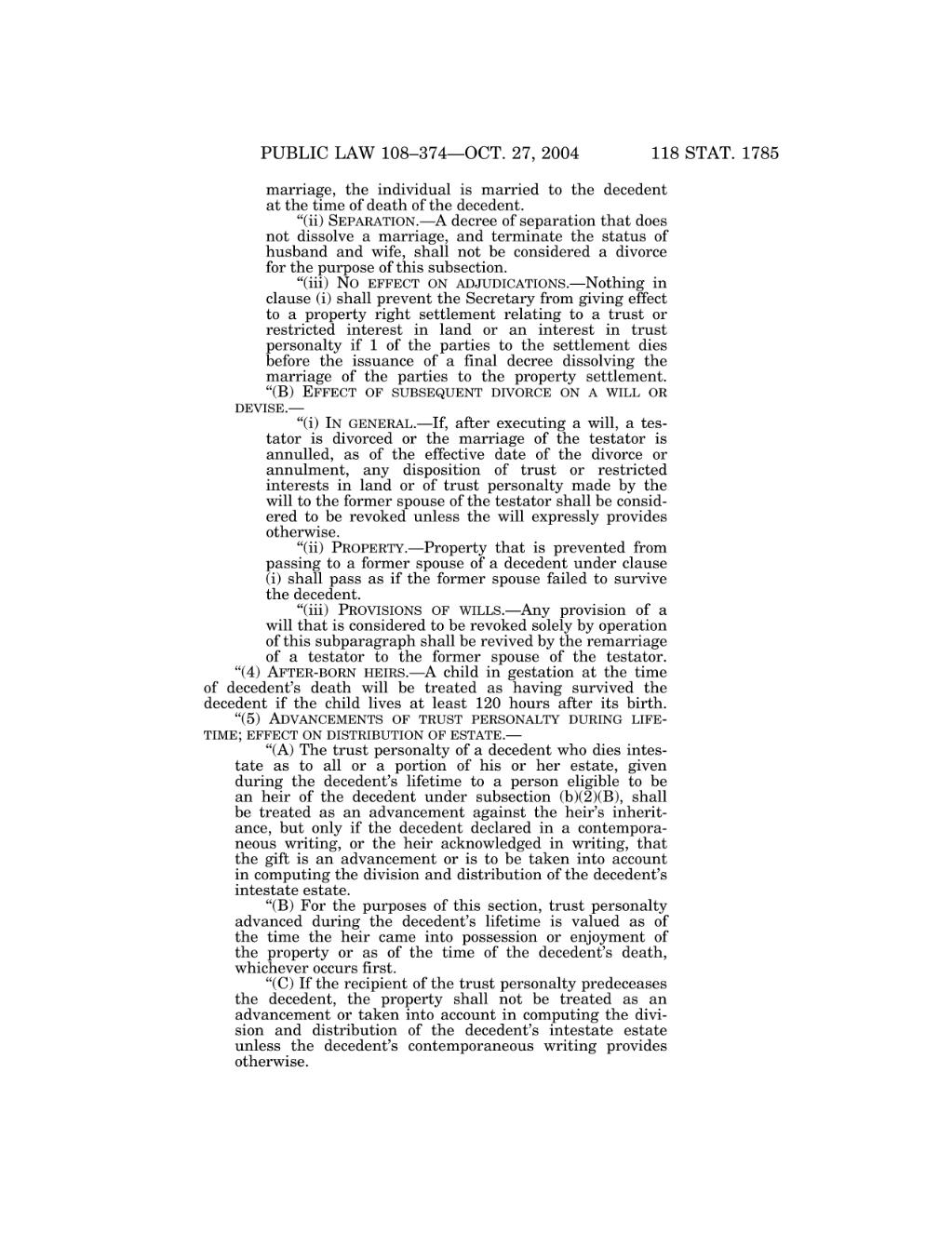118 STAT. 1785 PUBLIC LAW 108–374—OCT. 27, 2004 marriage, the individual is married to the decedent at the time of death of the decedent. ‘‘(ii) SEPARATION.—A decree of separation that does not dissolve a marriage, and terminate the status of husband and wife, shall not be considered a divorce for the purpose of this subsection. ‘‘(iii) NO EFFECT ON ADJUDICATIONS.—Nothing in clause (i) shall prevent the Secretary from giving effect to a property right settlement relating to a trust or restricted interest in land or an interest in trust personalty if 1 of the parties to the settlement dies before the issuance of a final decree dissolving the marriage of the parties to the property settlement. ‘‘(B) EFFECT OF SUBSEQUENT DIVORCE ON A WILL OR DEVISE.— ‘‘(i) IN GENERAL.—If, after executing a will, a tes tator is divorced or the marriage of the testator is annulled, as of the effective date of the divorce or annulment, any disposition of trust or restricted interests in land or of trust personalty made by the will to the former spouse of the testator shall be consid ered to be revoked unless the will expressly provides otherwise. ‘‘(ii) PROPERTY.—Property that is prevented from passing to a former spouse of a decedent under clause (i) shall pass as if the former spouse failed to survive the decedent. ‘‘(iii) PROVISIONS OF WILLS.—Any provision of a will that is considered to be revoked solely by operation of this subparagraph shall be revived by the remarriage of a testator to the former spouse of the testator. ‘‘(4) AFTER BORN HEIRS.—A child in gestation at the time of decedent’s death will be treated as having survived the decedent if the child lives at least 120 hours after its birth. ‘‘(5) ADVANCEMENTS OF TRUST PERSONALTY DURING LIFE TIME; EFFECT ON DISTRIBUTION OF ESTATE.— ‘‘(A) The trust personalty of a decedent who dies intes tate as to all or a portion of his or her estate, given during the decedent’s lifetime to a person eligible to be an heir of the decedent under subsection (b)(2)(B), shall be treated as an advancement against the heir’s inherit ance, but only if the decedent declared in a contempora neous writing, or the heir acknowledged in writing, that the gift is an advancement or is to be taken into account in computing the division and distribution of the decedent’s intestate estate. ‘‘(B) For the purposes of this section, trust personalty advanced during the decedent’s lifetime is valued as of the time the heir came into possession or enjoyment of the property or as of the time of the decedent’s death, whichever occurs first. ‘‘(C) If the recipient of the trust personalty predeceases the decedent, the property shall not be treated as an advancement or taken into account in computing the divi sion and distribution of the decedent’s intestate estate unless the decedent’s contemporaneous writing provides otherwise.
�
